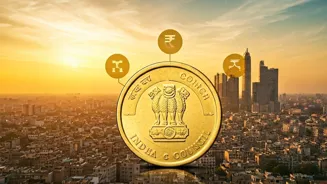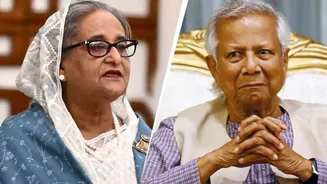The GST Council, a pivotal body in India's fiscal landscape, dictates the rules for the Goods and Services Tax. Understanding its members and their voting
rights is crucial for anyone involved in Indian business.
Council Composition Defined
The GST Council is headed by the Union Finance Minister. It also includes the Union Minister of State for Finance, plus the Finance Ministers (or ministers in charge of finance/taxation) from all Indian states and union territories. Each member contributes to a complex decision-making process vital for national tax policy.
Voting Power Allocation
A crucial aspect is the voting power distribution. The central government holds one-third of the votes, while all state governments collectively wield the remaining two-thirds. This setup is designed to balance central authority with state-level interests. Decisions require a 75% majority vote to be implemented.
Decision Making Process
The Council operates on a consensus-based approach. Discussions and deliberations often involve intense debates and negotiations, reflecting the varied financial landscapes across states. This collaborative approach aims to ensure GST policies are widely accepted and effectively implemented across the nation.
Impact on Indian Business
The GST Council's decisions significantly impact Indian businesses. Changes in tax rates, regulations, and compliance procedures directly affect companies' profitability, pricing strategies, and overall competitiveness in the market. Staying informed is key to thriving in the Indian business environment.
Future Implications Explored
As India's economy grows, the GST Council will continue to evolve. Understanding the council's dynamics is crucial for stakeholders. This understanding includes how future policies and modifications will affect the business environment, influencing everything from small startups to large corporations.















